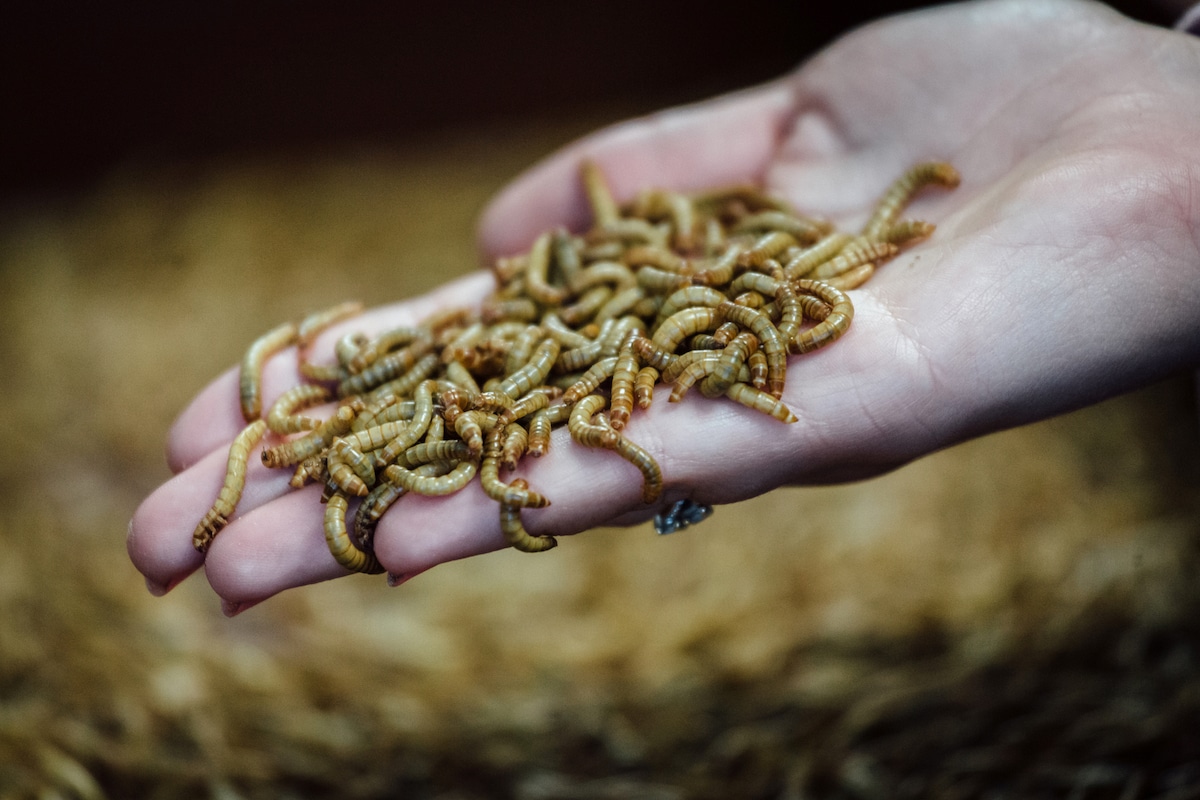Products You May Like
Eating insects like mealworms could be a more sustainable way to get proteins and meaty flavors. Bloomberg Creative / Getty Images
 Why you can trust us
Why you can trust us
Founded in 2005 as an Ohio-based environmental newspaper, EcoWatch is a digital platform dedicated to publishing quality, science-based content on environmental issues, causes, and solutions.
Meat consumption, especially if the meat was raised using factory farming, is a major contributor to a host of environmental problems including biodiversity loss, pollution and the climate crisis. In fact, some scientists even say that going vegan is the single most important thing an individual can do to reduce their impact on the planet and its systems.
But what if you miss the taste of meat or really need more protein in your diet? Researchers from Wonkwang University in South Korea may have an answer for you: beetle larvae, otherwise known as mealworms.
“Insects are a nutritious and healthy food source with high amounts of fatty acids, vitamins, minerals, fiber and high-quality protein, which is like that of meat,” Hee Cho, Ph.D., of Wonkwang University, said in a press release.
Cho is the principal investigator on a research team that tested the flavor profile of mealworms when cooked with sugar. They presented their findings Wednesday at the fall meeting of the American Chemical Society (ACS).
Mealworm is another word for the larvae of the yellow mealworm beetle, The Guardian explained. While they have been used as food for pets and bait for fish, they are not widely consumed by humans around the world. But the researchers thought that could change if they were used to create protein-rich flavors that were then added to other foods, the press release explained.
First, the researchers assessed the flavors of uncooked mealworms throughout their lifecycle. They found that the larvae tended to smell like sweet corn, soil or shrimp.
They then tried using various methods to cook the insects. Steaming the larvae produced stronger corn-like favors while roasting or deep-frying them led to oil-like or shrimp-like smells. Finally, the team heated the worms with sugars to produce different flavor samples. The samples were then taste-tested by a panel of volunteers to judge which were the most “meat-like.”
“As a result of this study, 10 of the reaction flavors were optimized based on consumer preferences,” graduate student Hyeyoung Park said in the press release.
The study comes as there has been a greater push to include insects in diets worldwide.
“Many consumers seriously like and need animal protein in our diet. However, traditional livestock farming produces more greenhouse gas emissions than cars do. On the other hand, insect farming requires just a fraction of the land, water and feed in comparison to traditional livestock farming,” Cho said, as The Guardian reported.
The UN has even recommended expanding insect production and consumption to help feed the 9.7 billion people projected to be alive by 2050, the Daily Mail reported. The UN’s Food and Agriculture Organization notes that you can raise crickets on six times less food than cattle, four times less than sheep, and twice less than pigs and broiler chickens while producing the same amount of protein.
While Cho noted that insects are considered “superfoods” in some Asian, African and Latin American countries, they still raise eyebrows and churn stomachs of many Americans and Europeans, according to The Guardian. That’s why adding an insect-based flavor to another food could be an ideal solution to introduce insect protein to global markets.
Subscribe to get exclusive updates in our daily newsletter!
By signing up, you agree to the Terms of Use and Privacy Policy & to receive electronic communications from EcoWatch Media Group, which may include marketing promotions, advertisements and sponsored content.
